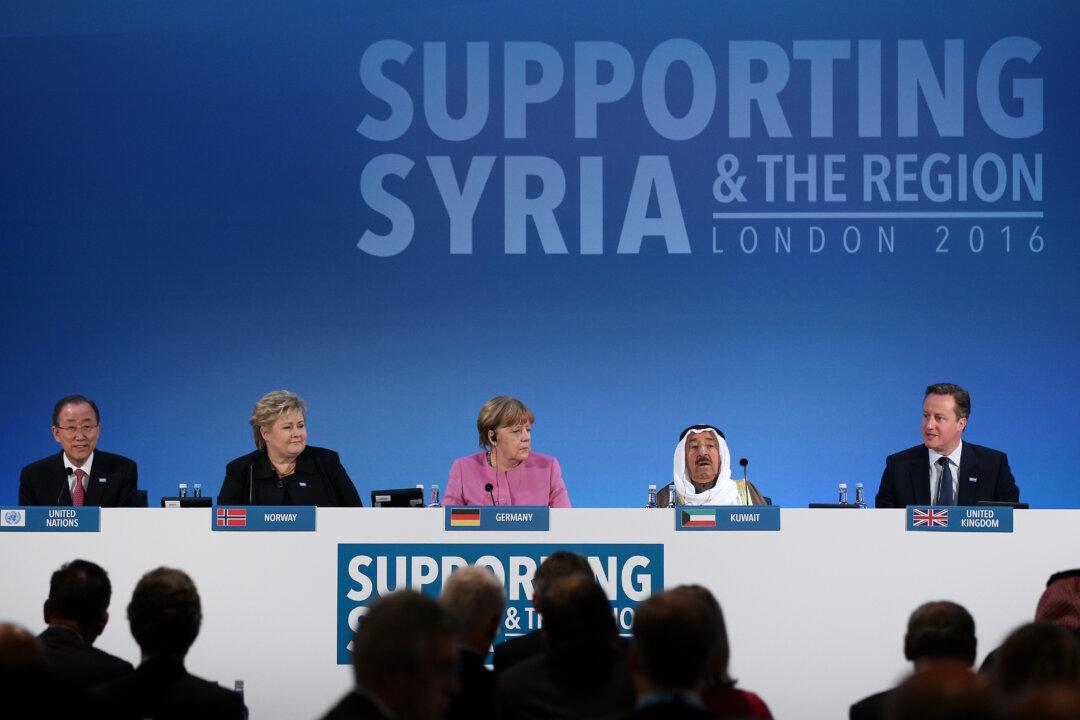LONDON—Leaders and diplomats from 70 countries are meeting in London Thursday to pledge billions to help millions of Syrians displaced by war—and try to slow the chaotic exodus of refugees to Europe.
The one-day meeting, held under tight security near the British Parliament, is aimed at gathering donations and agreeing on plans for economic and educational projects to help the 4.6 million Syrians who have sought refuge in neighboring countries including Jordan, Lebanon and Turkey.
The meeting opens hours after the latest U.N.-led bid to start peace talks in Geneva was suspended for three weeks—a sign of major difficulties. The faltering peace process increases pressure on donor countries to commit long-term aid to the victims of a five-year civil war that has no quick end in sight.
The U.N. and regional countries say they need $9 billion in assistance for 2016 alone, as the situation in the region deteriorates,
Conference co-host Britain has pledged 1.2 billion pounds ($1.75 billion) in new aid between now and 2020, and Secretary of State John Kerry is due to announce the U.S. commitment later.
Previous aid conferences for Syria have failed to meet their targets. Last year’s, in Kuwait, raised just half its $7 billion target, forcing cuts to programs such as refugee food aid.
But this year’s organizers—which include Britain, Germany and the U.N.—hope that finding jobs and schools for refugees can foster stability and keep displaced Syrians in the Middle East, slowing the chaotic migration of refugees to Europe.
British Prime Minister David Cameron said that “using fundraising to build stability, create jobs and provide education can have a transformational effect in the region—and create a future model for humanitarian relief.”






